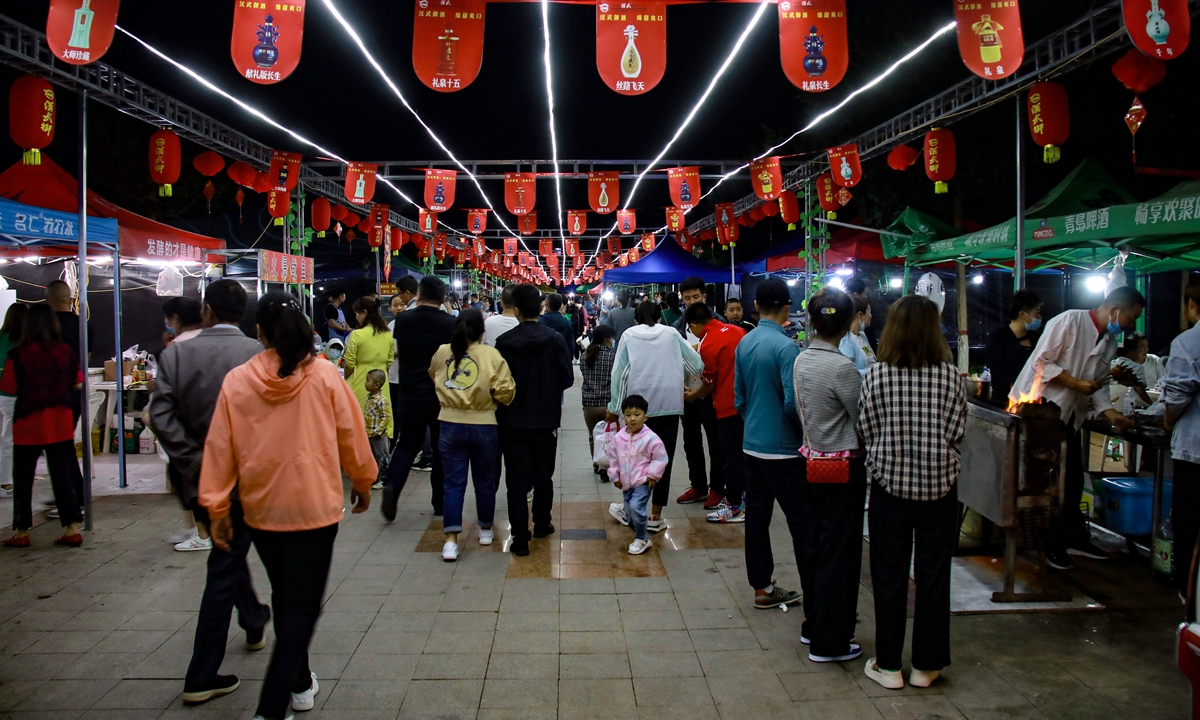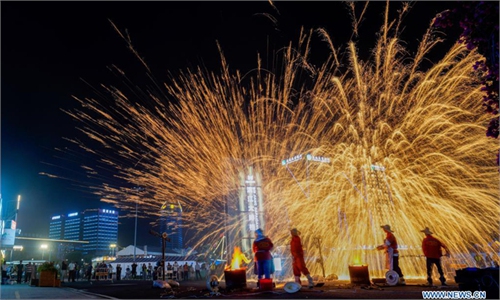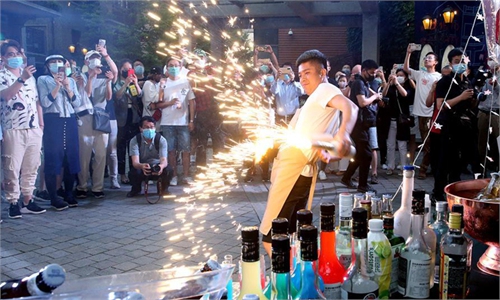Enjoying a kebab, buying T-shirts or a watermelon, local Chinese officials look to boost night-time consumption

Nightly economy Photo:CFP
Officials across different cities have called for residents to head outdoors, enjoy a meal, and go shopping to revive the so-called nightly economy, trying to lift domestic spending that has been dampened by the COVID-19 pandemic.
On the night of June 19 , Kong Xiaohong, Party Secretary of Xuancheng in East China's Anhui Province and mayor He Chunkuang were seen on the streets, enjoying a meal.
On June 15, Peng Dongguang, deputy Party Secretary of Guilin city, in South China's Guangxi Zhuang Autonomous Region bought a dessert and enjoyed a late night lamb kebab.
Ma Zhifeng, Party Secretary of Xinzheng, Central China's Henan Province recently visited a night market for grilled meat skewers, while Chen Chunmei, Party Secretary of Xinmi city not only snacked on BBQ, but also went shopping for watermelon at a night market. And, the Party Secretary of Nanyang, Henan, last month bought a T-shirt with the words "Love China" to show support for the nightly economy's rejuvinaiton.
Chinese observers have said that senior officials leading by example in supporting the nightly economy shows that cities are trying their best to restore consumer spending and boost each city's vitality, and that these actions will "give much confidence" to local residents.
As an important part of the urban economy, the performance of the nightly spending is regarded as a barometer of each city's economic vitality.
A report released by Tencent and the Liaowang Institute, showed that 60 percent of national consumption occurred at night in 2019, and the sales of large shopping malls between 6-10 pm exceeded 50 percent of an average day's sales volume.
Affected by factors including the pandemic, the country's retail sales have declined year-on-year for three consecutive months, said data from the National Bureau of Statistics.
In May, China's retail sales of consumer goods dropped 6.7 percent on a yearly basis, at 3.35 trillion yuan ($496.16 billion), followed by a decline in retail by more than 11 percent in April and a fall of 3.5 percent in March.
To drive up consumption, different cities have launched plans which include a focus on the night-time economy. Earlier in June, Hangzhou in East China's Zhejiang Province vowed to arrange more than 100 night-time promotions per year, focusing on nightly shopping, dining, tourism, and cultural events.
Global Times



